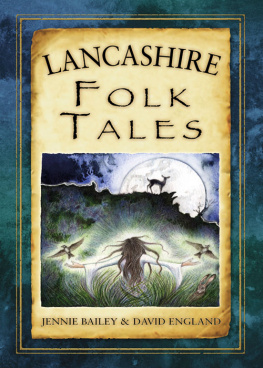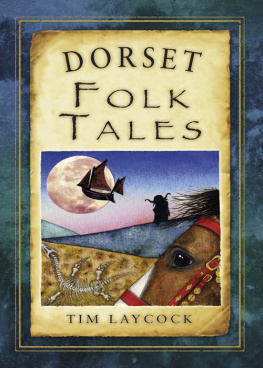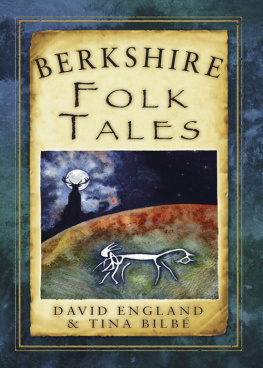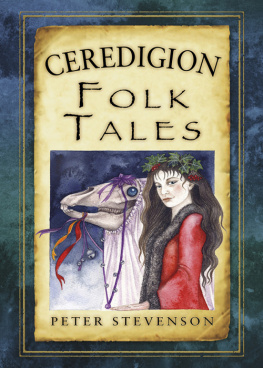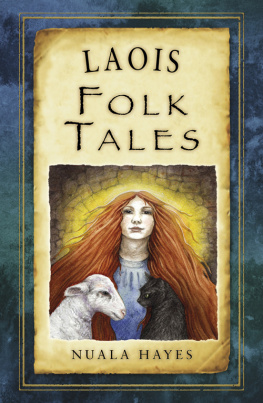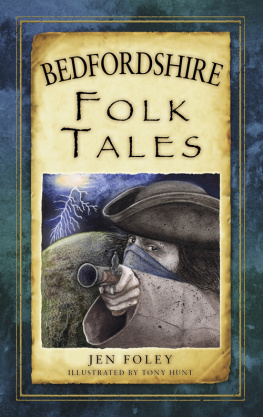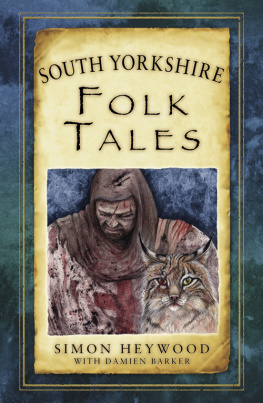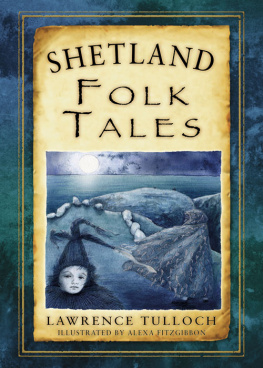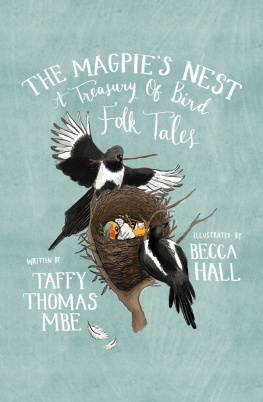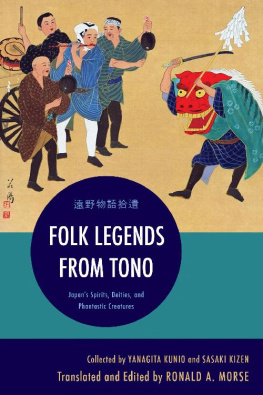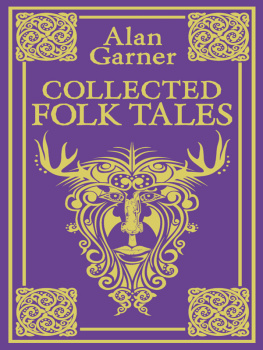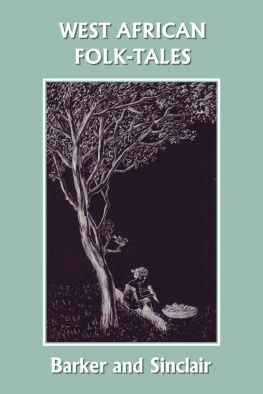
C ONTENTS
A UTHORS
Jennie Bailey
Jennie is a prize-winning writer and self-confessed word nerd. She writes fiction, plays, articles and poetry. Her writing is inspired by nature walking, being in nature, and the changes of the seasons. Although she lives in Greater Manchester, she is constantly dazzled by pockets of wildlife that appear in the most urban places.
Jennie believes that anyone can tell stories, and she supports children and adults in exploring and developing writing skills.
She has poetry published in various anthologies and has written and directed plays with the Didsbury Players, a Manchester drama group. Lancashire Folk Tales is her first collaborative book.
Her website is www.jenbee.me.uk.
David England
David is a man of many parts: writer, storyteller, psychotherapist and shamanic guide not separate parts so much as different aspects which interconnect and interact together.
David says, I love telling stories which make me laugh. Stories which I know can captivate an audience. Stories which touch the soul. He loves writing stories just the same way. For him, storytelling is a dialogue with the audience, and as a writer he seeks dialogue with a wider audience. His book Berkshire Folk Tales , with researcher-supreme and co-author Tina Bilb, was published by The History Press in 2013.
His storytelling website is davidengland.co.uk.
A RTISTS
Jo Lowes
Jo is a freelance photographer / graphic artist and teacher at Salford College, Greater Manchester. Her inspiration comes from travelling, two pesky cats, doodling and making sure her camera never leaves her side. More work can be seen at sheshouldbequiet.wordpress.com. For more info contact Joesylowesy@hotmail.com.
Adelina Pintea
Having worked in interior design, Adelina has always been an addict of the Rotring art pen and the uncanny watercolour washes that give it life. Originally from Transylvania, she is now Manchester-based with a portfolio that features urban sketches, the nonspeaking world of animals and scripted stories.
Her website is www.adelinapintea.co.uk.
The authors should like to thank The History Press commissioning editors Nicola Guy and Declan Flynn, as well as Helen Bradbury and Ross Britton from marketing, and especially Chris Ogle for his helpful and responsive approach to his editorial work.
A thank you to all the writers and storytellers of the nineteenth and twentieth centuries for collecting and recording such a wealth of folk tales, especially Frank Hird, John Harland & T.T. Wilkinson, Revd Thomas Cruddas Porteus and John Roby.
David should like to thank his family and friends for their patient support, especially his son Ed for his editing work, and his friends for listening to his stories, in particular Sylvia Friend, Jane Morrell and Simon Smith. Thanks also to Slough Writers for the invaluable contact with other professional writers, and especially to chairman Terry Adlam for his consistent support. His local librarian, Derek Beaven, a brilliant writer of literary fiction, for his support and encouragement, and to all who have helped along the way: Sir Bernard de Hoghton of Hoghton Tower; Revd Ray Hutchinson, rector of the parish church of All Saints, Wigan; the church cleaning team at St Elphins church, Warrington; and to the security guard who showed us the dungeon in Lancaster Castle where the Pendle witches had been incarcerated.
Jennie should like to thank her family and friends; Bury Heritage Library; Rebecca Daker; Tom Goodale; Richard Goulding; Dr Simon Heywood; Sarah Hau; Rob Hawley (and Jonas!); Dr Graham Kemp; Lancashire County Council; Lancaster Castle; Manchester Metropolitan University; Middleton Library; the Peoples History Museum; the Portico Library; Dr John Sears; Touchstones Local Studies Centre (especially for showing her their Weird and Wonderful files) and James Young.

Welcome to Lancashire Folk Tales ! My name is Lily Battersby and this is my friend and fellow storyteller, Dr Fred Hibbert. This evening we shall take you on a magical, mystery tour of old Lancashire, telling folk tales as we go.
Well be poking around haunted houses, bumping into boggarts, seeing how many clever Lancashire folk trick the Devil. There will be witches, a giant, a dragon and we will try to avoid the wicked Jinny Greenteeth!
As time is malleable, we will be travelling by various miraculous means many of which can no longer be travelled on. From the transporter bridge and swing aqueduct to horse and carriage over Morecambes sands, well take you on a journey around the wonderful County Palatine of Lancashire.
Lets tarry no longer mount up and lets be off!

L ILY : This story could be from anywhere along the golden coast of the north-west, however, it was retold in Southport by John Roby, and it is to Southport where we all arrive on horseback, from the south, the north, the east, or mysteriously cantering over the sands from the west.
We leave our horses to graze a grassy patch on Marine Drive then take the smart Southport Pier Tramway car the 1,216-yard trip over the sands to the end of the pier. Here Fred will tell us this chilling tale from these rose gold sands, the Phantom Voice.

The expansive coastline of Southport stretches for miles before you see the waves of the Irish Sea. The town itself, once a great resort, still has impressive natural surroundings. Theres the sharp tang of fish and chips in the air, and grand, brick houses are wrought with fancy ironwork.
But long ago, before Southport was a bustling holiday destination, there lived Bridget, who was the venerable, if eccentric, landlady of a local ale house. This pub was a moribund establishment, the only warmth and comfort coming from its blazing fires. The men came in to drink and contemplate the hardness of life. Around the well-lit bar area were twenty-one buxom brass mermaids. Fashioned to look the same, the aquatic sisters were sculpted, lounging back with one hand forever playing with long bronzed hair. These metallic sirens were supposed to represent several unfortunate souls who had lost their lives in a tragic sea accident. Bridget was known locally as a seer: one who could look into the future.
Who knew what she said about the fantastical goings on in her pub the night a young man came in with fear in his eyes, shivering and shaking like a thistle in the wind. The majority of the drinkers remembered that night for years, and the story passed into legend; the events of that evening engraved on their very souls. Many drank to try to forget it. Many drank to blot out the memories of the perils wrought along the barren tract of golden sand.
The current of the Irish Sea hits the water from the mouths of two mighty rivers, the Ribble and, further south, the Mersey. Shipwrecks were frequent in the area; nearly one hundred vessels had been wrecked within the last few decades, and especially at night when the sea mist was at its zenith.
It had been an unusually bright October day, the sort of warm autumnal weather that leads to a bone cold evening. The stars shone like polished pieces of bone. This was when a young man burst into the pub with wild eyes and an icy sweat on his brow. Bridgets usual clientle beheld him with silence, suspicion, and narrowed eyes. Even the usually smiling Bridget, her hankerings aside, momentarily ceased polishing the tankards.
Next page
